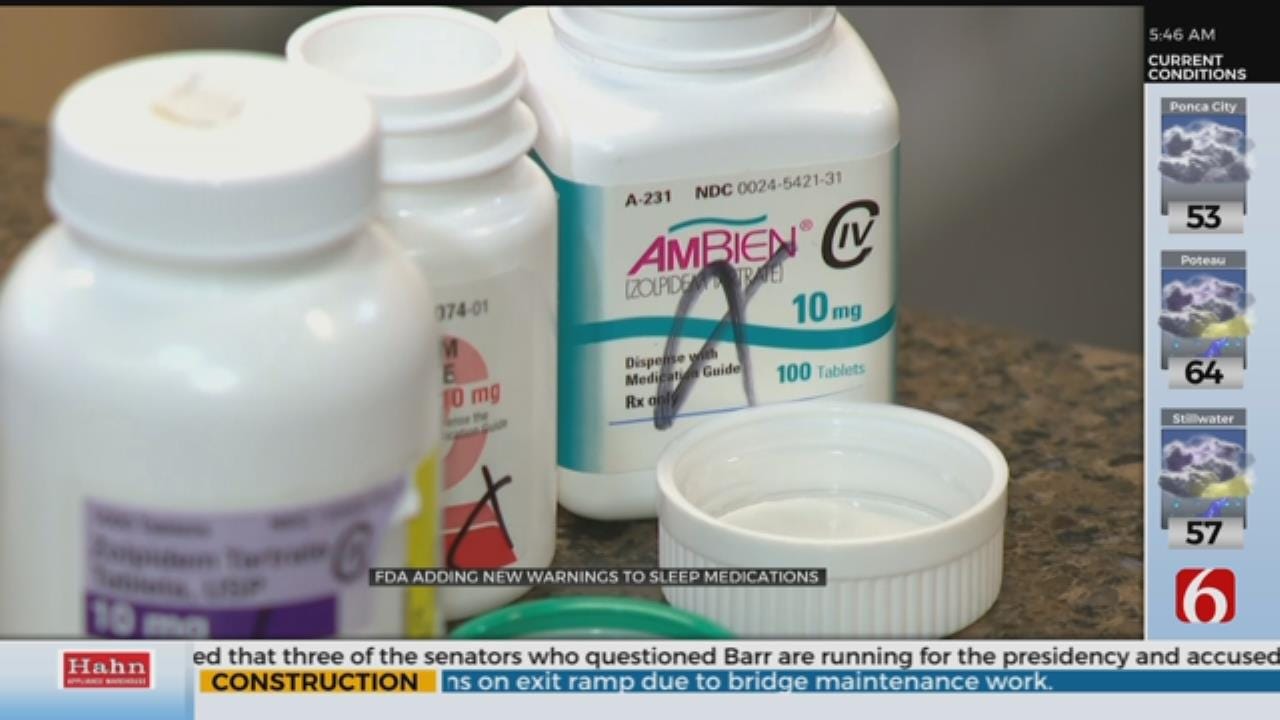FDA Issues Strong Warning Over Risks Of Common Sleeping Pills
The FDA ordered that several popular types of prescription sleeping pills, including Ambien, Lunesta and Sonata, will now come with a prominent "black box" warning slapped on the box.Thursday, May 2nd 2019, 4:36 am
Millions of Americans suffer from insomnia, and many of them depend on sleep medications to get them through the night. Federal health officials have warned for years about the possible side effects, and now they've issued their strongest warning so far.
The FDA ordered that several popular types of prescription sleeping pills, including Ambien, Lunesta and Sonata, will now come with a prominent "black box" warning slapped on the box. The labels and patient guides will alert consumers to the possibility of some dangerous side effects.
"They wake up for some reason during sleep and they exhibit behaviors we would perform while awake, like walking, eating, potentially even driving," Dr. Nancy Foldvary-Schaefer of the Sleep Disorders Center at Cleveland Clinic told CBS News.
Black box warnings are the FDA's most prominent warning. The FDA said the three drugs affected by the warning — zolpidem, eszopiclone and zaleplon — should not be given to anyone who has experienced "complex sleep behavior" such as sleepwalking.
It's not clear why some people experience more troubling side effects than others.
"It may be that some people are genetically prone anyway to these kinds of disorders and the medication can become an additional trigger," Foldvary-Schaefer said.
Doctors say while side effects from sleeping pills are rare, they can lead to serious or even life-threatening harm.
The FDA issued the new requirement after a safety review involving 66 cases in which patients engaged in activities resulting in serious injuries or death, such as sleepwalking or driving while not fully awake. The FDA says some suffered falls, burns, near-drowning, car crashes, or lost limbs after exposure to extreme cold temperatures. Of those cases, 20 people died.
"These incidents can occur after the first dose of these sleep medicines or after a longer period of treatment, and can occur in patients without any history of these behaviors and even at the lowest recommended doses," FDA Acting Commissioner Ned Sharpless, M.D., said in a statement.
Foldvary-Schaefer says the government's warning is an important reminder that medication should not be the only tool for addressing insomnia.
"Ten to 15 percent of adults in America have a chronic insomnia disorder and very often they've been treated with these medications as a first-line therapy," Foldvary-Schaefer said. "Other treatments, not medicine but behavioral therapies, work as well, if not better, long-term."
Those therapies include relaxation techniques and creating a better sleep environment.
First published on May 1, 2019 / 1:30 PM
© 2019 CBS Interactive Inc. All Rights Reserved.
More Like This
November 13th, 2024
October 28th, 2024
October 17th, 2024
Top Headlines
December 17th, 2024
December 17th, 2024
December 16th, 2024










